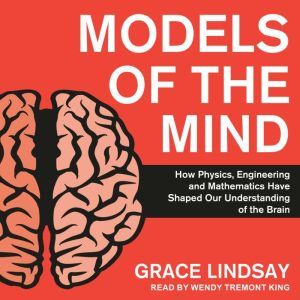

Models of the Mind
How Physics, Engineering and Mathematics Have Shaped Our Understanding of the Brain
Author: Grace Lindsay
Narrator: Wendy Tremont King
Unabridged: 13 hr
Format: Digital Audiobook Download
Publisher: Tantor Media
Published: 05/04/2021
Categories: Nonfiction, Mathematics, Science, Physics, Life Sciences
Synopsis
The brain is made up of 85 billion neurons, which are connected by over 100 trillion synapses. For over a century, a diverse array of researchers have been trying to find a language that can be used to capture the essence of what these neurons do and how they communicate—and how those communications create thoughts, perceptions and actions. The language they were looking for was mathematics, and we would not be able to understand the brain as we do today without it.
In Models of the Mind, author and computational neuroscientist Grace Lindsay explains how mathematical models have allowed scientists to understand and describe many of the brain's processes, including decision-making, sensory processing, quantifying memory, and more. She introduces listeners to the most important concepts in modern neuroscience, and highlights the tensions that arise when bringing the abstract world of mathematical modelling into contact with the messy details of biology.


